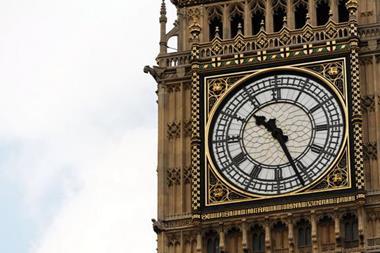Sustainability, ethical standards and anti-corruption measures - these are the three big issues that should be dominating every corporate agenda, bellieves Nathan Skinner
There is no denying that there have been some big steps forward in terms of corporate governance and risk management. The idea of corporate citizenship has certainly found its feet in the past decade.
But some things have not changed. Certain companies continue to act without responsibility, accountability and transparency. A host of regulations over the past ten years have attempted to enforce certain standards of behaviour. It is high time companies started doing the right thing.
Corporate misbehaviour is most vividly demonstrated in the financial crisis of 2008. Some banks found themselves in deep trouble having loaned billions of their savers’ money to other people who would never have any chance of paying it back. It seems many of these banks knew perfectly well the risks that they were taking but they failed to apply the brakes. In the worst cases the banks got caught up in short term thinking. The people responsible for authorising the loans didn’t care because they knew they wouldn’t be around when the deals went sour. At the same time it was too easy to ignore the risk management department, which was supposed to act as the conscience of the business. The financial crisis showed that companies which focus on growth at all costs are unlikely to be around for ever. Sadly, it is likely that as memories of the crisis fade, some organisations revert to the same behaviour that was at its root.
Environmental responsibility has blossomed over the past ten years. Climate conscious consumers have increasingly learnt to demand a level of environmental performance from the companies whose products and services they use. For some firms environmentalism is no more than a sales pitch—they spend more on marketing their green credentials than on the initiatives themselves. Other companies have taken concrete action to improve their environmental performance.
Nevertheless, the world is getting hotter and carbon emissions are believed to be the main ingredient driving this change. With the failure of the climate change talks in Copenhagen to come up with a strict set of rules to keep global warming within a 2 degrees Celsius increase, the onus is firmly on environmentally conscious businesses to set their own targets. The corporate sector should not wait for carbon reduction commitments to be forced upon them.
Equally companies cannot abandon their ethical codes when they leave their home markets. At home in the developed markets of the West multinationals are more likely to be closely scrutinised because legal control mechanisms and media scrutiny are stronger. This does not mean that they can act without the same principles of fairness and accountability in more far flung parts of the world. Too often this is the case. These double standards often lead companies to become involved in human rights abuse or other acts, which they would not even consider doing at home.
Ethical behaviour is becoming even more important as emerging market based companies grow and begin to compete with more established Western brands. In the future, Western companies could fall by the wayside because of their perceived exploitation of less developed countries. Emerging market companies have already won the sympathy of local consumers by offering innovative new products. India was the first country to market the $100 computer and the $1000 car. If it and other new competitors continue to do so they may well overshadow Western companies
Multinationals also continue to prop up corrupt regimes and support the division of society by paying bribes overseas. In developing countries alone, politicians and officials are estimated to receive bribes of up to US$40bn annually, according to Transparency International (TI).
Efforts to combat this problem on the bribe payer’s side have increased in recent times. Strict penalties have left some companies red faced and others looking over their shoulders. Siemens was fined $1.6bn by European and American authorities in 2008 for paying kickbacks to secure contracts in places like Argentina and Iraq. Almost one in five businesses claim to have lost business due to a competitor paying bribes, according to TI’s 2009 Global Corruption Report, which shows the scale of the problem.
Companies should kick the habit because bribery is bad for business and society at large. The TI report shows that corrupt businesses cost billions, while undermining the stability of the economy, fair markets and effective development. TI showed that consumers around the world were overcharged approximately US $300bn through almost 300 private international cartels discovered from 1990 to 2005.
Another common business practice, this time in the insurance sector, which distorts markets and impedes competition is the payment of contingent commissions. This is an issue that has been hanging around the insurance market for too long, and it is more than a niggle for risk managers. There have been some positive moves towards transparency but ultimately a failure to wipe out this archaic practice altogether. The issue was not laid to rest with New York Attorney General Elliot Spitzer’s 2005 inquiry. Recent developments in New York have overturned his ban on the big brokers taking contingents. StrategicRISK asked the big three insurance brokers if they would return to accepting these dirty fees (see box).
Above is just a snapshot of some of behaviours that should be swept aside over the coming years if the world is to stand any chance of achieving a sustainable future. Perhaps in another ten years we will look back and see how far companies have come.
Contingents: What the 'big three' say
In February, New York's insurance regulator decided to allow brokers to accept contingent commissions again, brushing aside a 2005 ban on them. It followed a similar decision in Illinois. StrategicRISK asked the big three brokers whether or not they would return to accepting contingent commissions. This is what they said.
Willis chief Joe Plumeri said: "I think it's an archaic system that needs to go away. I can't make it go away but I can disallow it from happening here. I don't believe for a minute that [not accepting contingents] hurts the economics of my company, because I think there are clients that would love to do business with us because we stand for integrity."
A spokesman for Aon said: "We do not accept contingent commissions in our retail brokerage operations. For Aon, the bigger picture is all about transparency so that clients fully understand what they are paying for and the value they receive. It is also about having a level playing field for all brokers. There is a global desire for increased transparency, and we fully support that point of view."
A spokesperson for Marsh said: "We are committed to transparency. We are going to continue to provide clear disclosure to our clients and to provide them with the necessary information to help them make decisions in the insurance-buying process. If our compensation creates the appearance of conflicts of interest, we will manage those conflicts by monitoring them, disclosing them to clients and satisfying all legal and regulatory requirements."



















